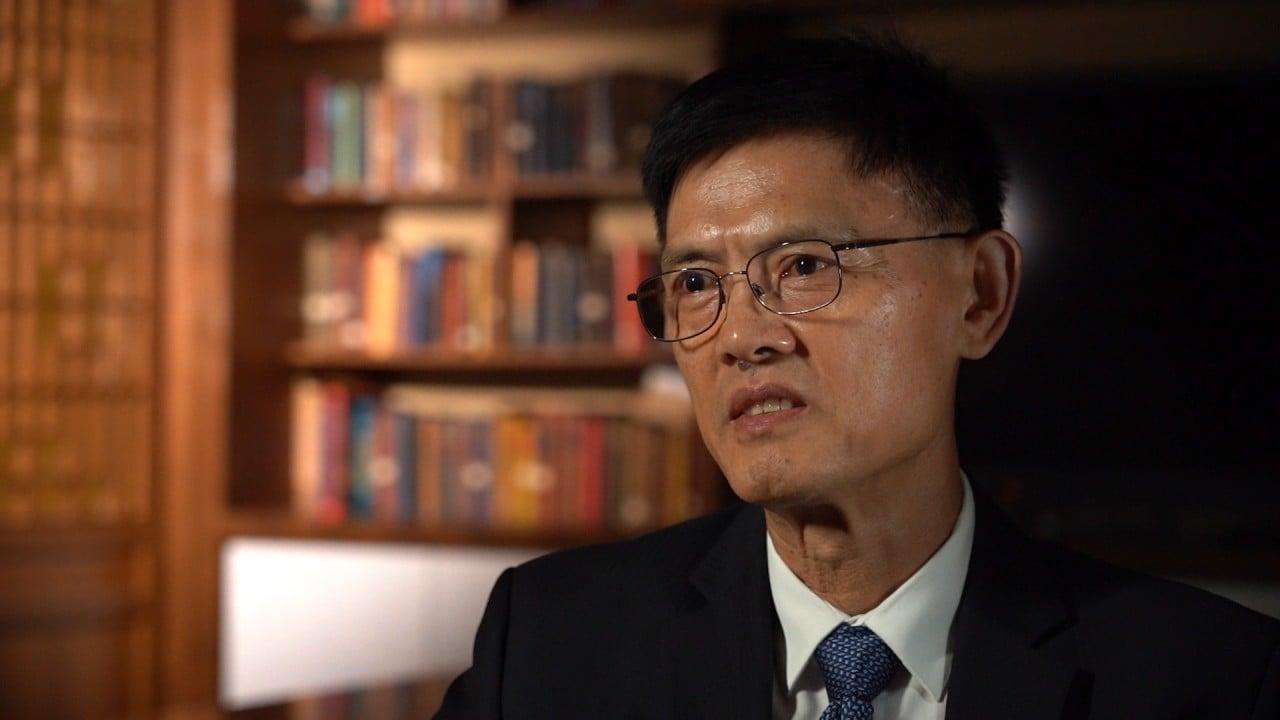
Banning immigrants, especially Asians, from land ownership is nothing new in America. California enacted the Alien Land Law in 1913, restricting land ownership to “aliens eligible to citizenship”, which was an intentional effort to preclude Asians from owning properties.
The Alien Land Law responded to the anti-Asian sentiment in the 1800s and 1900s, rooted in white supremacy and orientalism. Asians were perceived as perpetually foreign, unable to assimilate culturally to white society, and an economic threat to white labourers. Eventually, 15 states, including Texas, adopted similar laws that banned Asian immigrants from owning real properties.
The historical town of Locke in California. The houses were built by Chinese immigrants in the 20th century, but they were prevented from owning them by the Alien Land Law of 1913. Photo: AP
There is no meaningful distinction between Senate Bill 147 and the Alien Land Law; the new bill expressly bans property ownership by immigrants, mostly Asians. The national security concern, in this case, only serves as a disguise.
Once passed, individuals from the four designated countries will not be able to purchase any land in Texas, from a town house in Dallas, to a bakery in Laredo. There is no reasonable argument to be made that such an extremely broad ban would benefit national security in any way.
Meanwhile, the largest oil refinery in Texas is still owned by Saudi Arabia, but Saudi Arabia is nowhere to be found in any of the bill’s sections.
SB 147 is simply a manifestation of the Texas Republican Party’s anti-China xenophobia. To many voters, this is about America versus China. China is the enemy; therefore, the Chinese must also be bad, as they are all potential agents of the Chinese Communist Party. They will never become us. While we are capable of differentiating ourselves from our government or political party, the Chinese simply cannot. Once Chinese, always Chinese, always Chinese Communist Party.
The root of such anti-China sentiment is complex, as it is embedded with orientalism, just as it was in 1913, but also justified by legitimate concerns over China’s aggression today. Nevertheless, a blind attack on China and the Chinese as a whole is not the answer to these concerns. All it does is amplify racism towards the Chinese, citizens and non-citizens alike.
The most recent evidence of this is the failed China Initiative of Donald Trump’s Justice Department. Few defendants charged under the initiative were found to have engaged in espionage. Many of them, including prominent STEM scholars, became victims of racial profiling. The China Initiative has created irreparable harm to the American science academy.
Asians should not be distracted by Kolkhorst’s amendment. Citizenship or residency has never served as a meaningful safeguard against racism. It did not save the Japanese from mass incarceration during World War II; it did not exempt American Muslims from governmental surveillance after the September 11 attacks; and it did not prevent Asian Americans from being the targets of hate crimes during the Covid-19 pandemic.
For those who frequently engage in US-China business, you should pay attention. SB 147 is not a Texas issue only. It reflects an increase in anti-China sentiment on a national level, and it will only get nastier in the coming presidential race.
Governor Ron DeSantis is considering adopting a similar law in Florida. House Speaker Kevin McCarthy has created a China Committee, vowing that “the era of trusting Communist China is over”. Senator for Arkansas Tom Cotton said there should be a national ban on TikTok. The anti-China list is growing rapidly all over America.
Perhaps, it is time to acknowledge the reality: the Chinese are not welcome in Texas, and in many other places in today’s America.
Leo Yu is a clinical professor of law at the SMU Dallas Dedman School of Law

